We are delighted to share the insights and collaborative energy from the first of its kind un-conference for Pharmacists in clinical research, hosted by RxE2. Held on October 24th, 1 pm ET, this landmark event occurred during American Pharmacists Month, emphasizing the profession’s pivotal role in advancing healthcare.
For those who missed the dynamic conversations, the full recording is embedded below, offering a deep dive into the future of community-based clinical research.
A Participant-Driven Approach
The RxE2 “un-conference” provided a refreshing change from traditional meetings. Unlike standard seminars, this was a participant-driven event where the agenda was created by attendees, encouraging open discussion, collaboration, and sharing of ideas. The flexible, informal format proved ideal for pharmacists interested in clinical trials to connect and learn.
The central theme was clear: community-based clinical trials and how pharmacists can impact clinical research and improve patient access within their communities. Discussions focused on how community pharmacists can get involved, enhance patient outcomes, solve industry challenges, and, critically, create additional revenue streams for their pharmacies. Attendees were even invited to suggest discussion topics for 15-minute sessions in formats ranging from presentations to roundtable discussions.
Ethical Foundations and Patient Trust
The conference featured foundational presentations crucial for anyone working in clinical research, including a session on the ethical framework of trials and a detailed look at patient engagement.
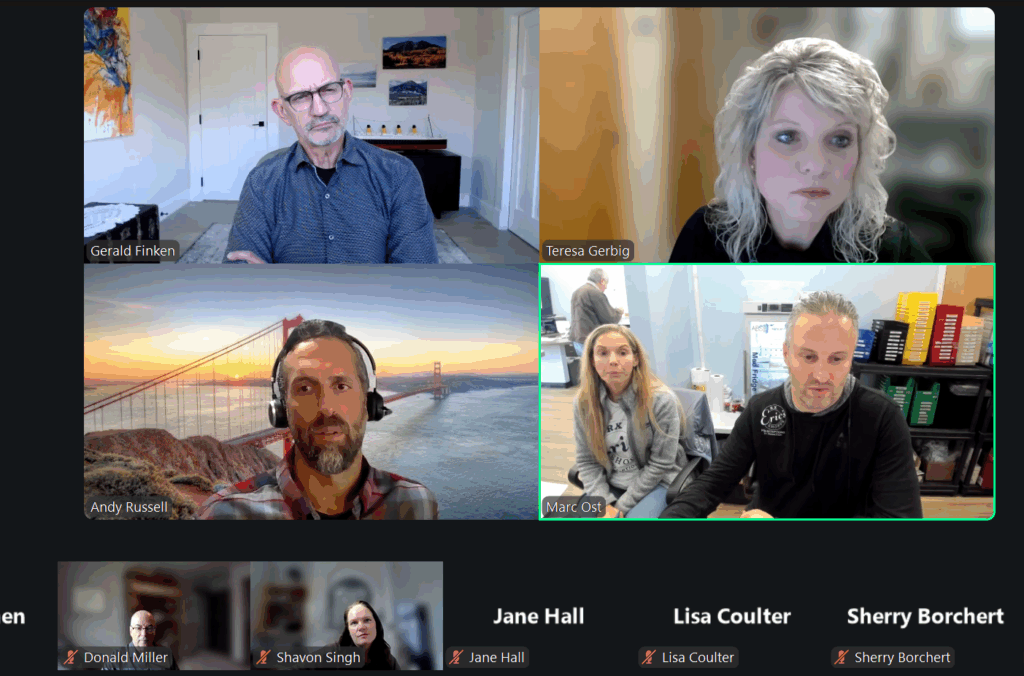
The Ethics of Experimentation
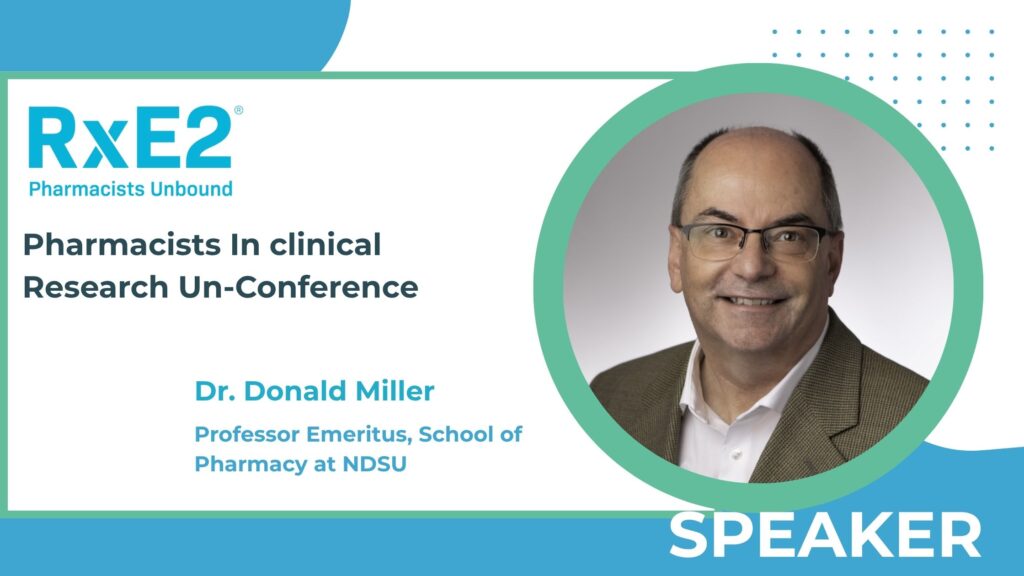
Dr. Donald Miller, Professor Emeritus, School of Pharmacy at NDSU, brought his expertise in drug literature evaluation and rheumatologic pharmacotherapy to discuss the “Ethical aspects of Clinical Trials”. Dr. Miller stressed that a clinical trial is the most ethical way of finding out the benefits and risks of any intervention, compared to simply experimenting with drugs in a new way.
He detailed the three key aspects of ethics in trials:
- Autonomy: The patient’s freedom to make decisions without coercion, requiring thorough informed consent detailing all known benefits and possible side effects, even rare ones.
- Beneficence: The research must result in a net benefit to society, though not necessarily to individual patients.
- Justice/Equity: Risks and benefits must be distributed equally and fairly, meaning investigators avoid targeting vulnerable populations.
A particularly insightful discussion point raised by Dr. Miller was the ethical use of a placebo. He explained that a placebo control is entirely ethical if there is “true doubt” about the safety and efficacy of the investigational drug. In fact, if a new drug turns out to be ineffective or has unexpected side effects, the person receiving the placebo may actually be receiving the “better treatment”.
Leveraging Community Trust for Referrals
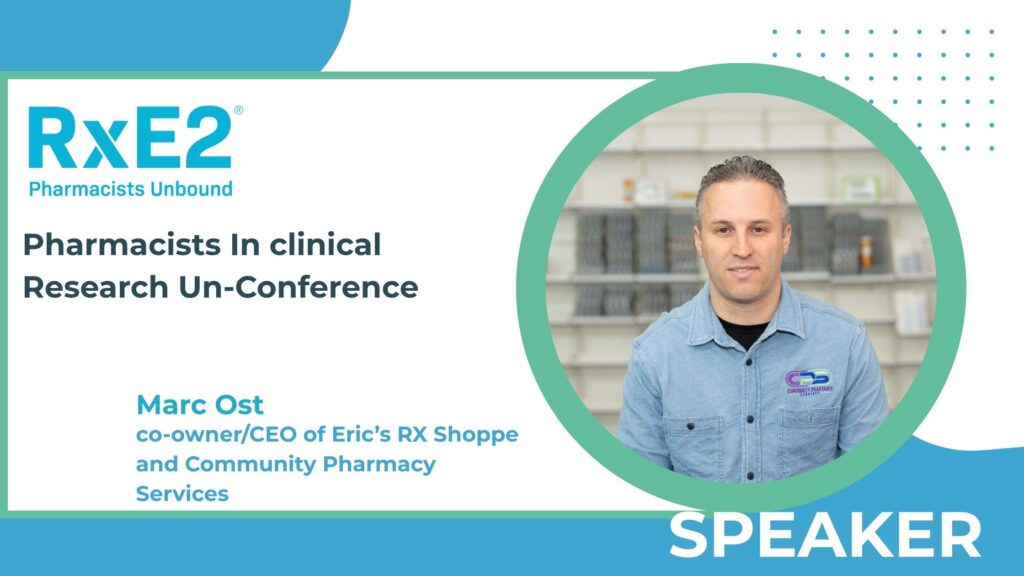
Marc Ost, co-owner/CEO of Eric’s RX Shoppe and Community Pharmacy Services, presented on “Patient referrals – how pharmacies can facilitate referrals”. Ost, who consults on pharmacy-related issues with government agencies, highlighted the immense value that the community pharmacy brings: credibility and the “direct relationship” with patients.
Ost’s team often uses non-pharmacist staff, such as technicians like Lisa Colter, for initial outreach under the supervision of a pharmacist. Lisa confirmed that patients frequently ask whether they will receive a placebo. Ost emphasized that transparency is key; they explain to concerned patients that they are providing de-identified data and are not “selling the information”. Ultimately, patients who enroll are often those seeking better options because their current treatment “maybe the treatment’s working, maybe it’s not working as well as they would want to,” viewing the trial as an opportunity to receive excellent, highly observed care at no cost.
The Vision: CTRP® and the Pharmacist Trust Unit
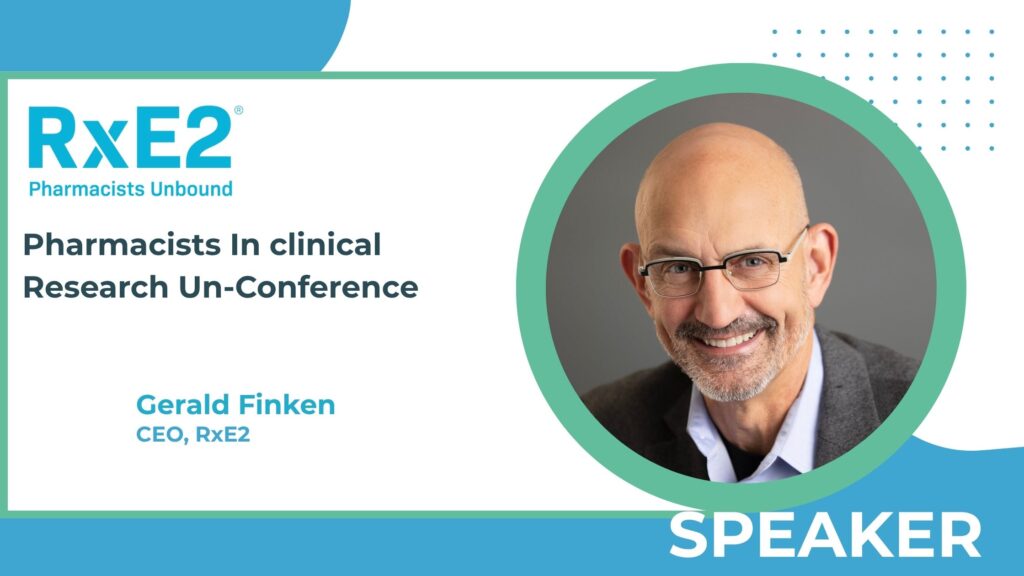
Gerald Finken, CEO of RxE2, a licensed pharmacist with over 40 years of industry experience, closed the conference by discussing “The vision of CTRP® and pharmacists trust unit”. Finken’s goal is to bring the practice of pharmacy into the “very regimented, strict, doesn’t change world of clinical research”.
Finken is the pioneer of Clinical Trial Research Pharmacist (CTRP®) services. This concept was born after recognizing high patient non-compliance in a diabetes trial (Premalatide). By having pharmacists counsel patients, compliance drastically improved, leading to FDA approval. The vision of the CTRP® is to recognize pharmacists who have specialized training in the nuances of clinical research, taking the successes pharmacists already achieve in the community (patient recruitment, medication compliance, and retention) and applying them to the industry.
Finken also issued a challenge to attendees: defining a “unit of trust.” He noted that pharmaceutical industries are focused on building patient trust, something community pharmacists inherently possess. Finken contrasted the infrequent visits to a primary care doctor (perhaps once or twice a year) with the frequent interactions with a pharmacist,up to 32 times a year. This frequency exponentially increases the opportunity for trust to be built and maintained, making pharmacists uniquely positioned to solve the industry’s long-standing problems.
RxE2: Revolutionizing Research
RxE2 is actively revolutionizing how clinical trials are conducted by utilizing, for the first time ever, community pharmacists. RxE2 is already working with more than 1200 community pharmacies that are involved in clinical trials, impacting their communities and diversifying their revenue streams. Through cutting-edge technology, RxE2 provides crucial services such as patient recruitment, dispensing, counseling, and operational support to the pharmaceutical and biotech industries.
We thank all our speakers and attendees, including Pharmacy Network Manager Teresa Gerbig, for making this first un-conference a success. If you have ideas for speaking, would like to lead a discussion, or have any questions about contributing to future events, please reach out
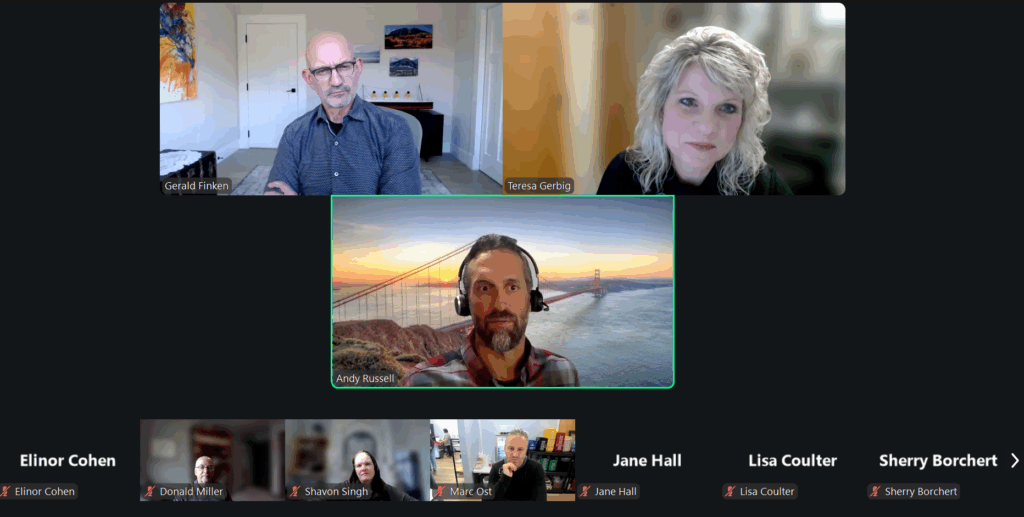
Just as a river’s course is shaped not by a single dam, but by the myriad small streams feeding it, the future of clinical research will be shaped not just by large centralized centers, but by the trusted, consistent flow of access provided by community pharmacists.






